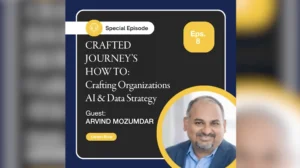Why You Should Be Investing In Online Learning for Your Customers and Employees
Education is critical to growth, and online learning beyond traditional walls is transforming business unlike ever before. The relationship between learning and work is becoming more blurred as the two become part of the same integrated ecosystem.
So why is owning education so transformational for a business, its employees and customers?
Companies that invest in online learning have 218% higher revenue and 24% better profit margins. Thus, companies that aren’t already integrating online learning, are scrambling to catch up. By 2025 the global elearning market is expected to reach $325 billion.
On this episode of EdTech by MarketScale we talk with JW Marshall, a B2B Online Learning Consultant, about the technology and content in today’s online learning management systems and the importance of integrating education into an organization.
There is a shift away from old school learning management systems that traditionally were thought of as a compliance tool by HR for employees to comply with rules. Today, online learning is meant to be so engaging that people want to learn to build more skills and advance their careers. IBM found that for every dollar they spent on eLearning, they saw $30 in increased productivity.
“[In the] early stages of learning management, systems got a bad rap that they are boring, not engaging and a “have-to”. In the new digital world of Netflix and YouTube, you can binge-watch almost anything and now and we hope that training and online learning are moving that direction. That they’re so engaging that you want to learn more,” says Marshall
Online learning helps people learn without an agenda. The missing link? Companies providing the platform for their employees so they don’t have to go somewhere else to get it.
Unlocking the potential of online learning
Science and creativity are both vital in executing content for online learning systems. “A lot of companies have great ideas but don’t know how to create engaging content and design in engaging sequences with video, text, assessments,” says Marshall.
Today is the golden age of online learning. The eLearning industry has grown by 900% since 2000. Learning has evolved from simple text-based documents, to PDF’s, to powerpoints to what we have today – video that is not just animated, but also 3D and interactive.
Historically, higher education had been the early adopter of online learning with technologies slowly trickling down to high schools, middle schools, elementary schools and lastly – businesses. But in last two years the gaps are beginning to close and companies themselves are starting to innovate more and prioritize learning.
Why? Digital natives have entered the workforces and the status quo is no longer good enough. Today, 80% of US companies are using online learning.
Being able to curate content to guide employees and extend learning beyond just the core of a business helps in building a culture of learning which is incredibly powerful. Why? So you don’t end up with workers that don’t want to change, evolve and progress.
But it’s not just employees. “Learners can be customers, employees, channel distribution partners – really anyone that is taking the course,” says Marshall.
“Customer training is becoming more and more important as you want to make sure your customers know everything they need to know about your products, your services, that you’re continuing to train them as your products evolve and that you’re building that relationship so that they stay with you,” says Marshall.
So why should a business invest in education not just for their company, but for their industry? Listen to the full episode of EdTech by MarketScale on Apple and Spotify, and learn more here.
For the latest news, videos, and podcasts in the Education Technology Industry, be sure to subscribe to our industry publication.
Follow us on social media for the latest updates in B2B!
Twitter – @MarketScale
Facebook – facebook.com/marketscale
LinkedIn – linkedin.com/company/marketscale








